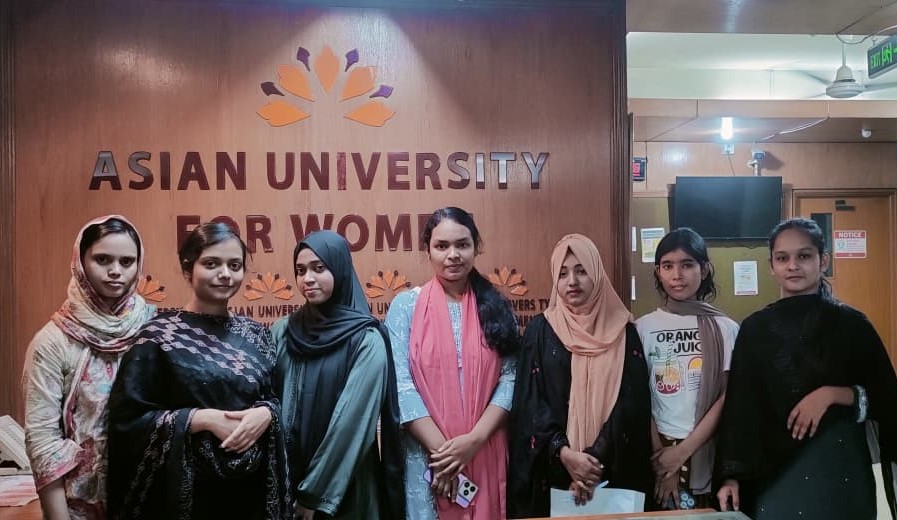Bangladesh as a middle-income country: ENGAGING PRIVATE SECTOR MORE EFFECTIVELY
“Effectively engaging the private sector is the most powerful tool to success and greatly assists developing countries, which will be evident in Bangladesh by elevating herself as a middle-income country very soon.” Dignitaries attending a business meeting have expressed their opinion today in a gathering organized by country’s largest bilateral trade body Bangladesh-German Chamber of Commerce and Industry (BGCCI). The theme of this business meeting was “Bangladesh as a Middle Income Country: Engaging the Private Sector More Effectively”. Hossain Toufique Imam, Honorable Prime Minister’s Political Adviser, chaired this event. Along with him, Ambassador and the Head of European Delegation to Bangladesh, H.E. Rensje Teerink, and the German Ambassador, H.E. Dr. Thomas Prinz, were also guests at this event.
The event focused on inclusiveness in development frameworks and intended to figure out how to engage the private sector in the socio-economic development of Bangladesh further, with becoming a middle-income country as a shared goal that can be achieved through mutual effort of the government and the private sector. The speakers praised the government’s efforts to empower the private sector and help them grow organically. They have also addressed some of the complications that are holding back the private sector stakeholders from getting sufficiently involved in Bangladesh’s development process.
Imam gave paramount importance to the private sector’s engagement in the government’s development framework. He has expressed his gratitude for the contribution they have made for the economic development and overall progress of the country. Praising their efforts, he said “Whatever our government has done, we have done it with the help, support and active and positive actions taken by the private sector. We have always kept them in mind whenever we have worked on policies and I must say that our private sector has taken full advantage of the policies that we have worked with so far. To see all these successful entrepreneurs in this room gives me the hope that our common goal to see Bangladesh as a middle-income country is not a one-sided initiative from the government. This room assures me that the most promising force behind our country’s development so far is more than willing to become a partner of the dream we have started dreaming 47 years ago and they will work heart and soul to turn it into a reality.”
Imam also said “We have come a long way since we first started privatization and the private sector development and improvement in 1996. We started opening up the markets for competition. We have given opportunities to the private sector companies to start and grow their business without having any drawback from the government or its regulatory authorities. The results are visible now, we have companies doing business with Bangladesh from all parts of the world. I know we have difficulties and pitfalls, we know that the roads are not smooth, but let me assure you that we are taking the challenges and making it as smooth and as free as possible.”
Tawfiq Ali, the president of BGCCI addressed the gathering and said “If you ask me there is absolutely no doubt in my mind that Bangladesh will be rising as a middle-income country very soon. We are standing on the verge of becoming the next manufacturing destination for many global businesses. The way this government is thinking of reshaping the economy of Bangladesh, they see changes that we have witnessed so far, I think in the near future our presence will no longer be ignorable as the catalyst behind the growth of many global economic superpowers.”
Congratulating Bangladesh for its recent promotion from lower development country to developing country, Dr. Thomas Prinz expressed his hope that the Bangladesh government will be more attentive to remove the hurdles that businesses very often face. For Bangladesh to have a better market access in European countries and to meet their demands in social and economic standards he has advised, “The draft law of the digital security act as it is now, the child marriage law and a number of other things have to renegotiate then. I think it would be wise for the government to start early to get in a dialogue with this countries, to talk about this issues to gain future market access. I would like to congratulate the government for passing the one-stop solution bill in last February. This will make it easier for the European businesses to enter the Bangladeshi market.”
Praising Bangladesh government’s incredible economic growth over the last two decades H.E. Rensje Teerink, EU Ambassador and Head of Delegation, said “European Union will continue its support in this transition through our programmes and our development cooperation. We have to acknowledge that the growth has been extremely impressive. But there is this need to be more inclusive and take everybody along to make these achievements sustainable. I think everybody here is aware of this, growth and inequality have also evolved together and that is a little bit of a downside. It will take a continuous focus on poorer and I think it’s very much commendable that they are also on the government’s agenda.” She also emphasized that “It is extremely important for the business climate to improve considerably in order to encourage the private investment from both local and foreign sources.”
As a leading personality of Bangladesh’s private sector, Rupali Chowdhury, the Managing Director of Berger Paints Bangladesh Ltd, identified few issues which are deterring the private sector’s competitiveness. In her speech as a guest speaker, she said, “We have been talking about these issues with the government and regulatory authorities. Investment is an investment, that whether it is domestic or foreign. For the last few years, we have seen that the GDP and investment ratio is stagnating. If we really look into the issues, we see that places are not available to establish a factory. The government has taken some steps like developing economic zones. Developing economics zones take time. But for us the time is right now, it was yesterday. There are other competing countries like Vietnam and Thailand out there. We are falling behind them in this completion the investment is going somewhere else.”
She also stressed on the fact that infrastructure development is necessary, not only in physical form, like roads, transports or ports but also required in the regulatory form. TAX reformation is required for the private sector to do better in their businesses and to get the reward they deserve for taking the risk of investing in Bangladesh.
Another representative of the private sector was Meherun N. Islam, President, and Group Managing Director of CEMS Global, a leading name in trade show organizing and exhibition. She emphasized on easing the government’s bureaucracy and to engage the private sector along with public sector. She said, “An exhibition permission which used to take 15 days, five years ago, now takes anywhere between three to five months. The file moves through bureaucracy, who, with all due respect, understand neither the industry nor the logistics involved in the organizing of an international event. This is where we as the private sector stall and look upon to our government. We call upon our government to open its doors wide open to learn the process of engaging and building partnerships with the private sector.”
The speakers emphasized that Bangladesh government recognizes the central role of the private sector in advancing innovation, creating wealth, income and jobs, mobilizing domestic resources and in turn contributing to poverty reduction. The shared hope is that the private sector will have a better reciprocating relationship with the government and people will ultimately benefit from such kind of rapport.
*PHOTOGRAPHY BGCCI















